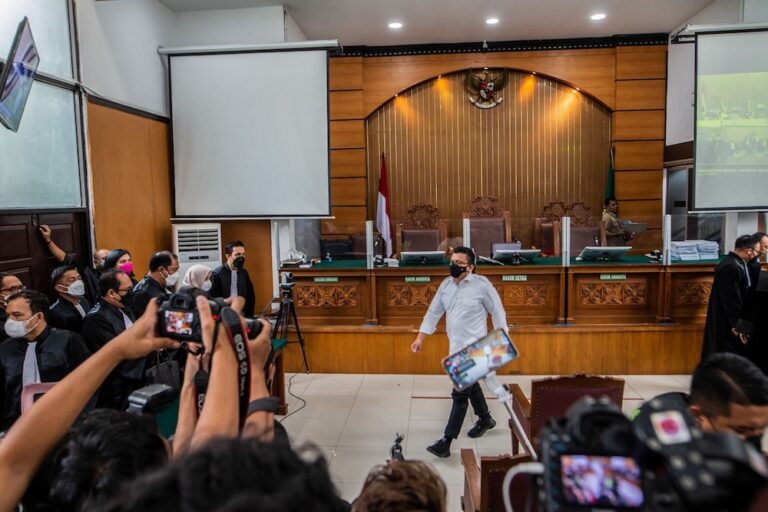(SEAPA/IFEX) – On the eve of Indonesia’s Independence Day, the country’s Constitutional Court has dealt a serious blow to Indonesia’s press freedom with a decision upholding the constitutionality of criminal defamation. The 15 August 2008 court decision effectively dismisses a petition filed by journalist Risang Bima Wijaya and columnist Bersihar Lubis, who were jailed for […]
(SEAPA/IFEX) – On the eve of Indonesia’s Independence Day, the country’s Constitutional Court has dealt a serious blow to Indonesia’s press freedom with a decision upholding the constitutionality of criminal defamation.
The 15 August 2008 court decision effectively dismisses a petition filed by journalist Risang Bima Wijaya and columnist Bersihar Lubis, who were jailed for insulting a chief editor and the Attorney General’s Office.
Supported by the Jakarta-based Alliance of Independent Journalists (AJI), a SEAPA member, the case filed by Risang and Bersihar argued that Indonesia’s articles on criminal defamation contravene a constitutional guarantee to freedom of the press.
“The Constitutional Court’s decision shows inequality under the law and contradicts the public’s expectations for legal reform in Indonesia,” AJI said in a statement.
Press Council member Abdullah Alamudi expressed regret over the Constitutional Court’s decision to retain the defamation articles within the penal code, saying their retention keeps press freedom under serious threat.
“It is ironic to see our press threatened by articles we inherited from the Dutch colonial government,” Alamudi said after the hearing.
A panel of judges, presided over by Judge Harjono, said the plaintiffs’ demand for a judicial review of Article 310 paragraphs (1) and (2), Article 311 paragraph (1), Article 316, and Article 207 of the Criminal Code lacked legal basis.
The “Jakarta Post” quoted the judge as saying: “One’s good name, dignity and reputation are protected by the law and considered the constitutional right of individual citizens. This is guaranteed not only by the Constitution, but also by international law.”
In 2006, the Constitutional Court scrapped articles on defamation committed against the president and vice-president, saying they contradicted the Constitution. However, according to the “Jakarta Post,” the judges maintained that public officials needed special protection because “they possessed not only personal subjectivities but also institutional objectivities.”
In the face of the Constitutional Court’s decision, AJI has issued an appeal to state officials and the wider public not to resort to the Criminal Code in cases of complaints against the media.


